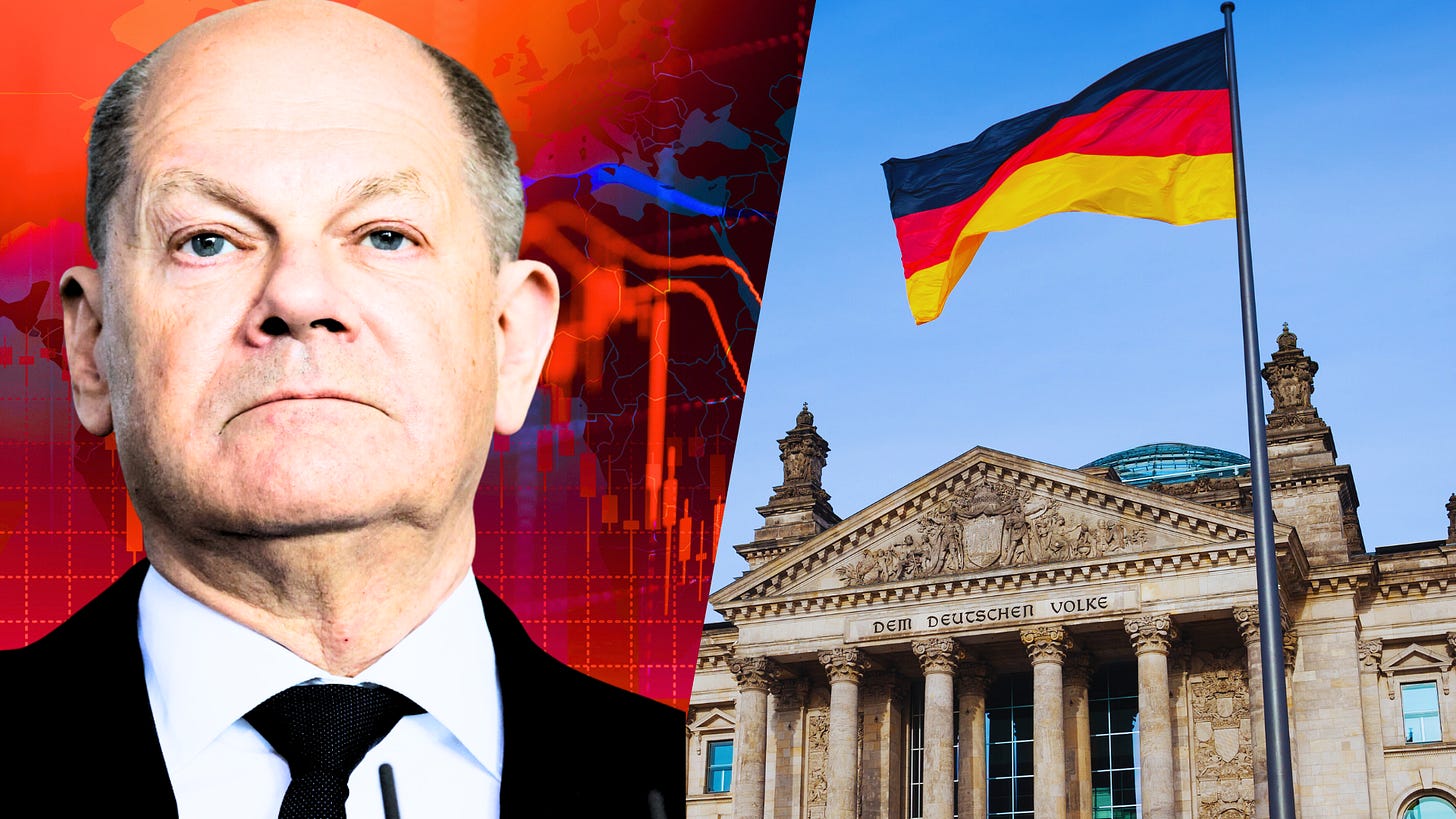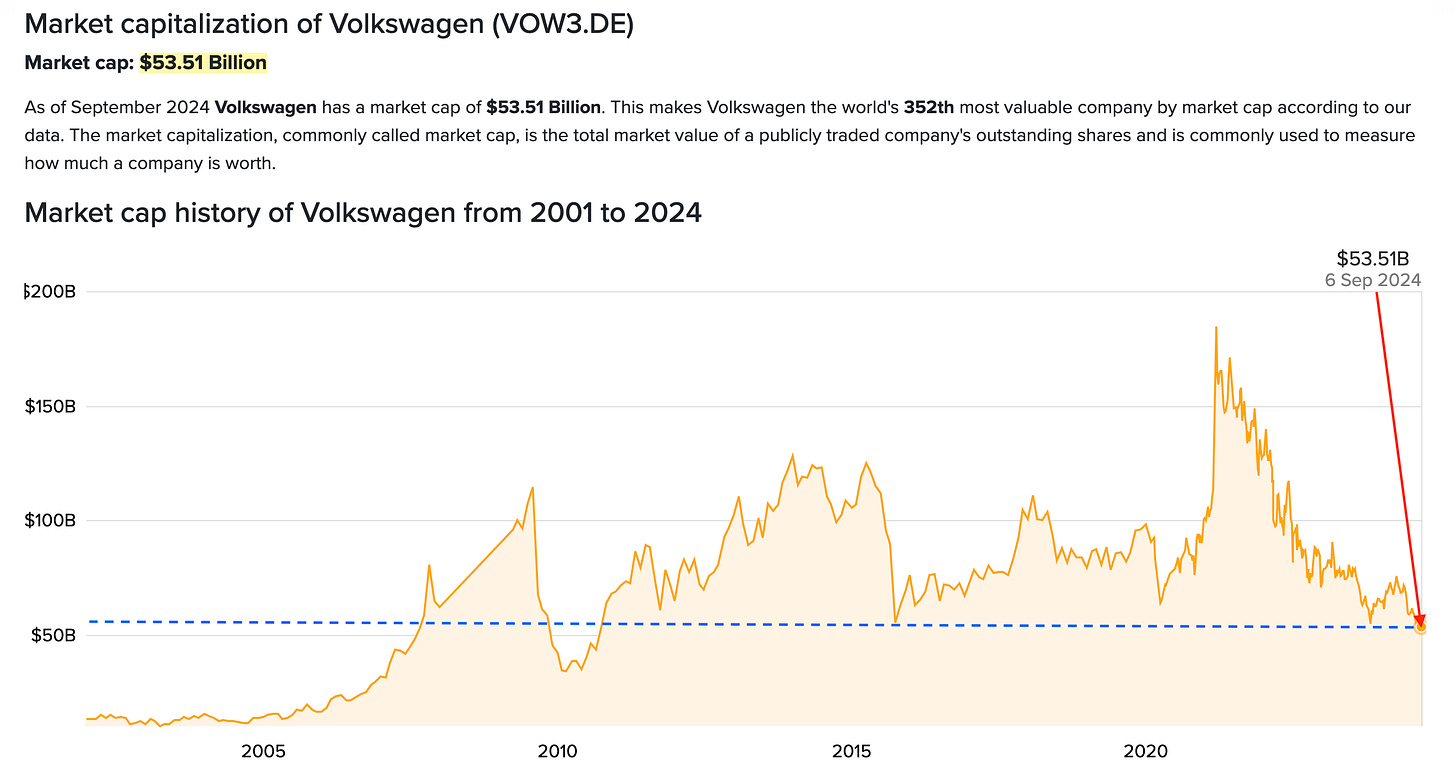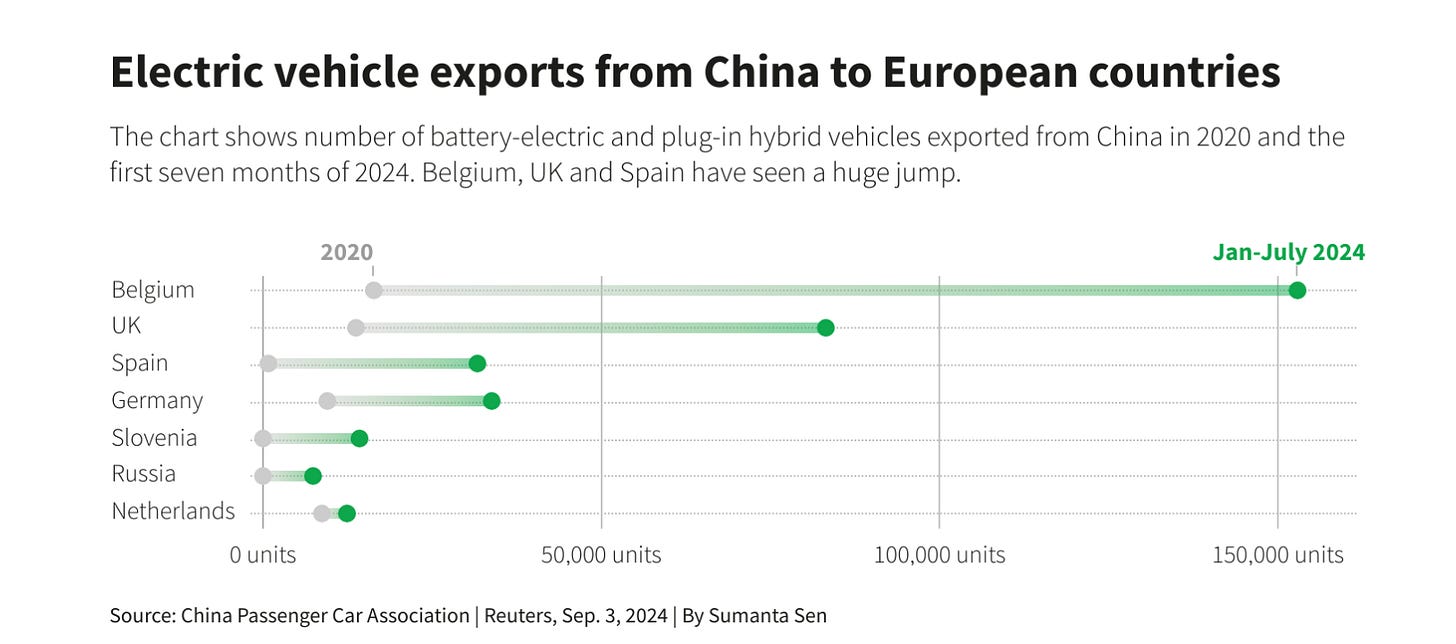Germany In Crisis: Biggest Companies Announce Closures as Germany Continues to De-industrialize
Chemical Conglomerate BASF Joins Volkswagen, Audi, ThyssenKrupp on the List of Struggling Companies
The German economy is not getting off the ground. Once the industrial powerhouse of Europe, Germany’s economy has been on a downward spiral since the 2019 health crisis. Just as a recovery was briefly in sight, the EU’s multistep self-sanctioning campaign resulted in Europe’s industrial powerhouse losing access to cost-effective energy resources. As if that wasn’t enough, the EU’s initiative to decouple from its biggest trade partner, China, became the final stroke.
The Kiel Institute explained that the economy of Germany is increasingly facing a crisis that is both cyclical and structural in nature:
“Positive signals in the middle of the year have not been confirmed, which is why we are revising our expectations for this year and the coming year significantly downwards. GDP is likely to fall by 0.1 percent in 2024 (vs. summer forecast +0.2 percent).
For 2025, economic growth expectations are down from 1.1 percent to 0.5 percent. The unemployment rate is likely to rise to up to 6.1 percent.”
Due to the fact that Germany is the biggest economy in Europe, other European countries are likely to experience similar negative economic trends. Financial Times recently revealed that Swedish Northvolt, a sub-Arctic battery company, despite raising more capital than any other private group in Europe — more than $15 billion in equity, debt, and government support - is now struggling to secure funds as it is forced to scale down and cut jobs.
Volkswagen, the biggest employer in Germany with more than 300,000 employees, for the first time in 87 years is shutting down two of its plants. Over the past five years, the company lost nearly a third of its value. Additionally, it is now the worst-performing European car maker:
Thank you for your continued support! If you enjoy my work, please consider upgrading to a paid subscription.
While Volkswagen points to its declining sales of EVs as one of the reasons for its financial troubles, Europeans across a number of countries prefer purchasing EVs from China:
Multiple German companies are announcing partial closures, divestitures, layoffs or transfer of manufacturing abroad. The list of struggling companies is growing, with the chemical giant BASF recently making its valuation and business strategy dilemmas public. Financial Times reports that the German conglomerate “can no longer take the strain”:
“…BASF, at €42bn of market capitalisation, is trading on a 20 per cent discount to the sum of its parts, according to Berenberg analysis.”
However, even the latest restructuring plans are unlikely to save the sinking ship that the industrial sector has become, unless the German government addresses a range of deep structural issues driven by its failing economic policies:
“Attractive though that might be (referring to the BASF CEO’s restructuring plans), it would not solve BASF’s underlying strategic problem. Its chemicals division, which turns petroleum products into the base and intermediate molecules needed to make everything else, is seriously challenged. A big chunk of its production is in Europe, where energy prices are a multiple of those of its US and Asian competitors.” (Financial Times)
European producers will find it increasingly challenging to compete with companies from China, as well as other parts of the world, where access to cost-effective resources, modernized industrial infrastructure, skilled labor at a lower price point combined with less strict government regulations do not prevent businesses from operating with higher profit margins. As Europe focuses on increasing its military-industrial output, the issues that continue to destroy Germany’s manufacturing capacities will become even more pervasive across its neighboring states.
I discussed Germany’s economic collapse in further details in a recent video:
Also available on: Rumble | Patreon
Stay connected with Lena: YouTube | Rumble | Locals | Patreon | X | Telegram






At some point we're going to have to face the fact that US policy is currently enriching those they commonly call enemies (Russia through oil and de-dollarisation alliances, China through massive ongoing trade surpluses on the China side of the ledger) while impoverishing her allies.
Perhaps vassals is more accurate but less politic.
As Kissinger noted, America is a dangerous enemy but a deadly friend.
As Germany goes, so goes the rest of Europe. A very bad omen. It blows my mind how the world has allowed a tiny minority of criminals to destroy so much so soon.